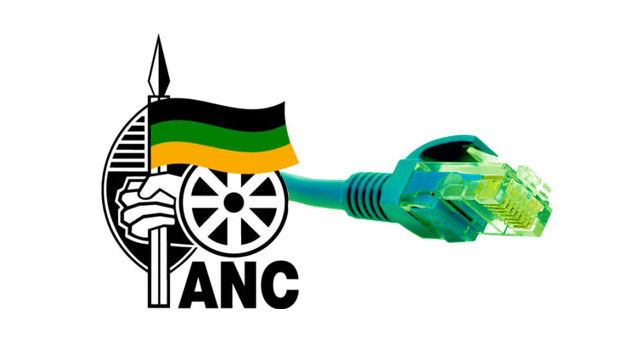
The fundamental problem confronting South Africa today is a political culture that is defective and out of kilter with the needs of the majority of the people. Innovative thinking about transforming the economy is stunted by political infighting at the top, indecision on crucial policy issues, grid-lock in departments key to the economy, and a president who is out of his depth on the economy.
There is thus no alignment of interests between political elites and the public. This is having a damaging effect on the public’s confidence in political leadership. This in turn affects economic performance. Many government departments that form the pivot of an economic cluster, which was set up to co-ordinate policies, suffer from atrophy. The cluster is made up of more than a dozen departments, including national treasury, economic development, and minerals and energy.
The country is clearly in desperate need of a new deal to win back confidence. But this won’t be easy given the intricate connection between the quality of leadership and the performance of the economy. The economy is likely to remain on a knife edge for some time in view of the possible sovereign credit downgrade in December this year.
The convoluted manner in which policy is determined by the ruling ANC through its opaque national general council and national policy processes do not help to inject confidence. General elections, which could be a massive wake up call for the governing party, will only take place in 2019. By then a great deal of damage would have been inflicted on the economy.
The challenges
National treasury is gradually losing its authority and lacks high-level political support. In fact, it is seen more as a nuisance than a necessary guardian of public finances. With finance minister Pravin Gordhan under threat from the country’s elite police unit, the Hawks, it is difficult to see how national treasury can confidently lead economic change.
The economic development department under Ebrahim Patel lacks a distinct mandate. It is difficult to quantify its role and impact on the economy. It was poorly conceived from the beginning and is unlikely to last beyond Zuma’s administration.
One noticeable imprint that minister of mineral resources Mosebenzi Zwane has had as a cabinet minister has been his threat to set up an inquiry into the banking sector for severing ties with Gupta-linked businesses. What is not known is his impact on his portfolio, the mining sector, which has been bleeding, and directionless since 2012.
In its 2016 analysis of the South African economy the International Monetary Fund (IMF) concluded that the country’s economic vulnerabilities had become heightened. It highlighted poor economic growth and financially weak state owned enterprises as key areas of concern.
The IMF also noted with concern rising government debt and the widening of the current account deficit which shows the country is spending beyond its means. South Africa’s current account deficit is cause for concern. And it’s likely to get worse given the gathering wave for free tertiary education. Public sector wage bargaining, due in less than two years’ time, will put upward pressure on government debt. Sober leadership is required to respond to all these challenges.

Some of the measures proposed by the IMF to turn South Africa’s economy around include structural reforms – for example, by ensuring more competition in the economy, inclusive labour market reforms, quality education and training, and improved governance so as to build confidence and boost growth, create jobs, lower inequalities and reduce vulnerabilities.
The reality is that there is nothing in the IMF’s report that has not been counselled to decision makers before. The core problem is the absence of leadership that is well equipped to manage a complex, modern economy that is plagued by acute socioeconomic challenges.
Urgent need for political change
The governing ANC has reached its limits. It is incapable of reforming itself. It has ceased to be an agent for economic restructuring and transformation, and has instead become inward-looking, with those at the helm concerned only with extracting value for themselves rather than changing the lives of citizens for the better.
There is a deep yearning among South Africans for change in the political landscape. The results of the recent local government elections have shown this. They demonstrated that, through competitive democracy, people can claim their power back from unaccountable elites.
This suggests that there is a fertile ground to nurture the emergence of new political formations ready to contest power. These could crystallise in a number of ways: through the merger of existing political parties, through coalitions, or through a further break-up of the governing party.
Another critical force that could ignite change is civil society. But the outcome might be far from perfect. Civil society is usually a collection of disparate interests and ideological persuasions that are sometimes irreconcilable. As imperfect as it is, there is no better agency than civil society to foreground social change.
And black intellectuals need to play an activist role in society. They can assume the responsibility of pushing for progressive change beyond the ANC era upon which the sun is gradually setting.
Beyond the ANC
The ANC has evolved as a movement that hoisted the banner of liberation for the black majority. Its symbols, songs and theory of struggle occupied a place of pride in the minds and hearts of many black South Africans. It has now lost its moral and intellectual ground to define the future and claim the mantle of leadership. More than ever before, South African politics cries out for moral renewal and transformational leadership. Civil society and intellectuals have an opportunity to shape society differently, and to give birth to ideas that could frame a new social and political order.![]()
- Mzukisi Qobo is associate professor at the Institute for Pan-African Thought and Conversation, University of Johannesburg
- This article was originally published on The Conversation

